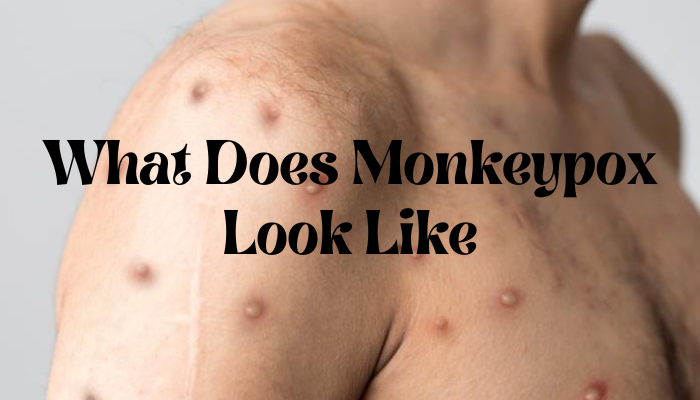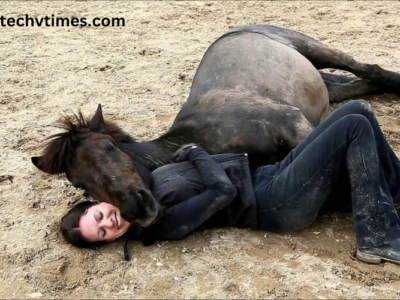Did you know that monkeypox is a rare disease that is caused by a virus? It is similar to smallpox, which is a deadly disease that has been eliminated in the world. Monkeypox can cause fever, headache, and body aches. In some cases, it can also cause skin lesions, chest pain, and difficulty breathing. If you think you may have monkeypox, it is important to seek medical attention right away. Learn more about this contagious virus in today’s blog post.
What Is Monkeypox
Monkeypox is a viral disease that is similar to smallpox. It is found in Africa and usually affects monkeys and humans. The disease gets its name from the fact that it was first found in monkeys.
Monkeypox is spread through contact with the fluids of an infected animal, such as blood, saliva, or mucus. It can also be spread through contact with contaminated objects, such as bedding or clothing.
Symptoms of monkeypox include fever, headaches, body aches, and a rash that starts on the face and spreads to other parts of the body. The rash eventually forms blisters and scabs.
Monkeypox can be severe, but it is not usually fatal. Treatment focuses on relieving symptoms and preventing complications. There is no specific antiviral treatment for monkeypox.
Prevention of monkeypox is through vaccination against smallpox. This offers protection against monkeypox as well. Vaccination is particularly important for people who are at risk for exposure to the virus, such as those who live in Africa or work with monkeys.
Vaccination against smallpox offers protection against monkeypox as well. Prevention of monkeypox is through vaccination against smallpox . This offers protection against monkeypox as well . Vaccination is particularly important for people who are at risk for exposure to the virus , such as those who live in Africa or work with monkeys . There is no specific antiviral treatment for monkeypox . Treatment focuses on relieving symptoms and preventing complications . Symptoms of monkeypox include fever , headaches , body aches , and a rash that starts on the face and spreads to other parts of the body. The rash eventually forms blisters and scabs .
Monkey pox can be severe , but it usually isn’t fatal . The disease gets its name from the fact that it was first found in monkeys . Monkey pox is found in Africa and primarily affects monkeys and humans . It’s spread through contact with bodily fluids like blood , saliva , or mucus of an infected animal . You can also get it by coming into contact with contaminated objects like bedding or clothing . contacts like these are how the disease got its name . contact with an infected animal’s blood , saliva , mucus , bedding , or clothing could all lead to you developingmonkey pox . Developingmonkey pox would result in symptoms like fever , headaches , body aches , and a rash that starts on your face before spreading to other parts of your body .
The rash will eventually start to form blisters which then turn into scabs While monkey pox can be severe , it’s rarely fatal.
Treatment typically just focuses on relieving symptoms and preventing complications. There’s no specific antiviral medication to treatmonkey pox. People who are most at risk for being exposedto the virus—for example those living in Africa or working withmonkeys—should get vaccinated. This vaccine will also offerprotection against small pox .
To preventmonkey pox , get vaccinated for small pox . This will also protect you from developing pox. If you’re worried about being exposedto the virus because of where you live or work, getting vaccinated is the best way to preventmonkey pox . It’s important to note that there’s currently no cure formonkey pox, however severity varies from person to person—most people will recover without any long-term effects but some may experience more serious complications like pneumoniae encephalitis which could lead to death.
Treatment rightnow mostly just involves focusing on relieving symptoms untilthe disease has run its course which takes anywhere from two weeksto four weeks. Fever reducers can help with fever and pain relievers can help manage body achesand headaches Until recently, there was no vaccination availableto protect people specifically from pox.
However, since monkey pox viruses are similar enough to smallpox viruses, peoplewho have been vaccinated for smallpox are protected from monkeypox as well. If you have not been vaccinated for smallpox(or if you don’t know whether you have), you can get vaccinatedagainst smallpox to protect yourself from both diseases. It’salso recommended that people who are at high risk forexposure—such as those who live intropical regions where monkeys are common, or whose job bringsthem into close contact with monkeys—get this booster vaccination.
As there’s no cure for pox currently available, treatment focuses solely on managing symptoms until the disease runs its course. This generally takes two weeks to four weeks In some caseshowever patients may experience more serious complications likethese which could lead to death Feverreducers analgesics can help reduce discomfort throughout this process Preventionis key when it comes to protecting yourself frommonkey pocksas there is no current cure If you haven’t been vaccinated for small Pox.
What Are the Symptoms
symptoms are the manifestations of a disease that are apparent to the patient. Symptoms allow the patient to recognize that they may have a problem and seek medical attention. Many symptoms are obvious, such as a headache or a rash. However, some symptoms are more subtle, such as fatigue or feeling “off.” It is important to pay attention to symptoms, as they can be an important clue in diagnosing a medical condition. If you are experiencing symptoms, it is important to discuss them with your doctor in order to determine the cause.
Are There Any Risks Associated With Monkeypox
Monkeypox is a rare viral infection that is found in some parts of Africa. The virus is similar to smallpox, but it is not as deadly. In most cases, monkeypox causes a mild illness with symptoms that include fever, rash, and headache. However, in some cases, the disease can be more severe and even lead to death. There is no specific treatment for monkeypox, and there is no vaccine available. As a result, any risks associated with monkeypox should be taken seriously. Anyone whothink they may have been exposed to the virus should seek medical attention immediately.
How Can You Protect Yourself From Monkeypox
One of the best ways to protect yourself from monkeypox is to avoid contact with wild animals, particularly those that are known to carry the virus, such as monkeys, rats, and squirrels. If you must handle any of these animals, be sure to wear gloves and wash your hands thoroughly afterwards. You should also avoid contact with people who have been infected with monkeypox, as the virus can be spread through direct contact with bodily fluids or through the air. If you think you may have been exposed to monkeypox, it is important to see a doctor immediately, as early diagnosis and treatment can improve your chances of a full recovery.
Conclusion:
Monkeypox is a virus that causes a rash and blisters. The rash can be itchy and uncomfortable, and the blisters may break open and leak fluid. If you think you may have monkeypox, see your doctor as soon as possible. Early diagnosis and treatment are important for preventing serious health complications. Has this article helped you understand what monkeypox looks like? Let us know in the comments below.











Comments